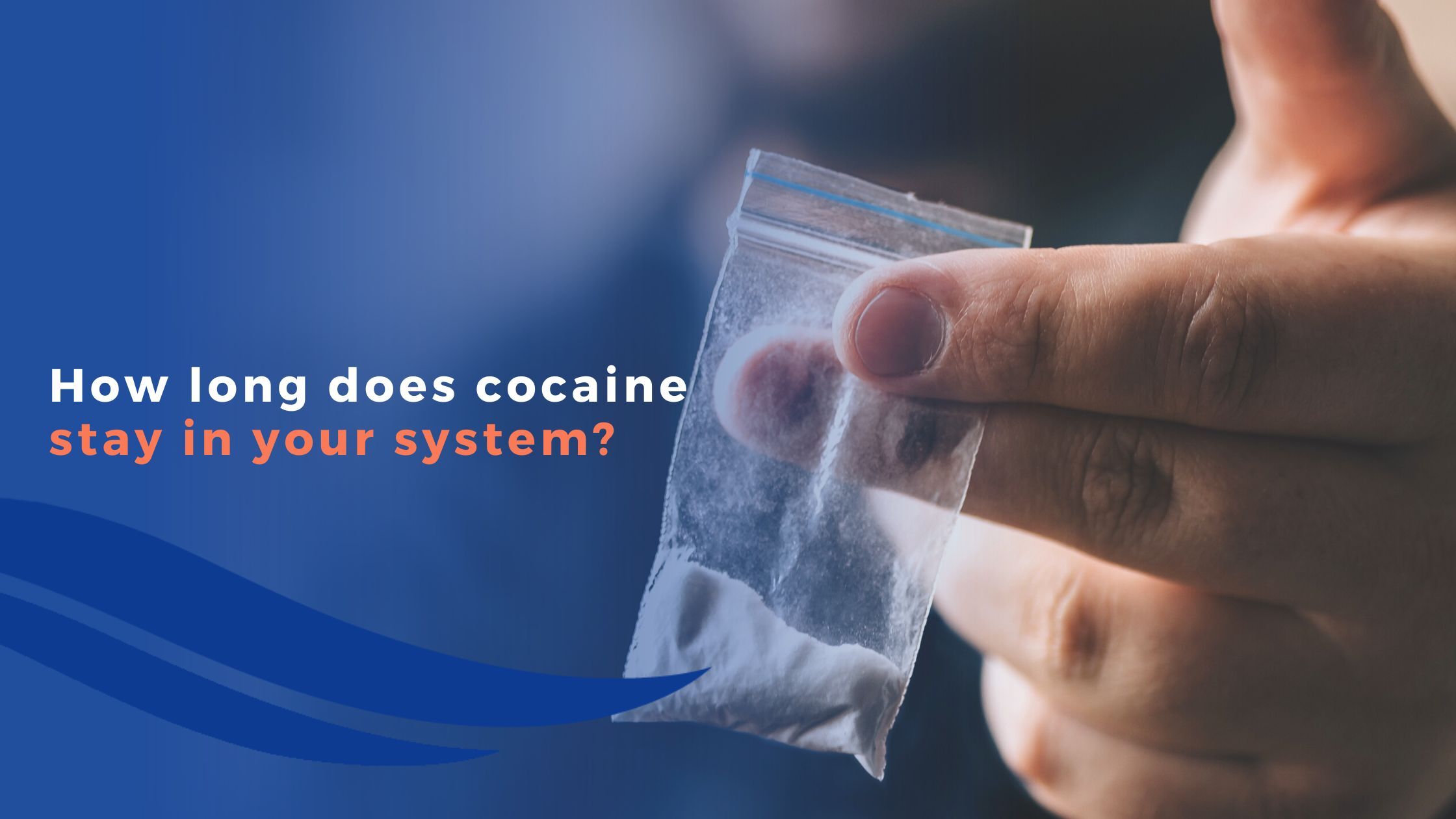How Long Does Cocaine Stay in Your System?


Written By
DreamLife RecoveryThe duration cocaine remains in your system depends on your frequency of use, dosage, and other factors. Cocaine has a shorter half-time than most drugs, which means that your body metabolizes it quickly. In a few hours, the dose in your system will be half the initial intake. Within a few days, your body will have eliminated the drug.
However, the time that cocaine stays in your system, blood, and hair varies. Your saliva, urine, and blood will only show the presence of cocaine for a few days. For the hair, cocaine will linger longer and a hair test can reveal the presence of cocaine for months. Nevertheless, you should expect to experience withdrawal symptoms shortly after quitting.
To learn more about how long cocaine stays in your system, read on. We will also discuss the dangers and risks of cocaine use and how to seek cocaine addiction treatment.
How Long Cocaine Stays in the System
As mentioned in the introduction, cocaine has a shorter half-life compared to other hard drugs. Within a couple of hours after cocaine use, the body will have metabolized half of it. Within a few days, the body will metabolize the whole cocaine dose and it will no longer show in the system.
The exact amount of time that your body takes to rid itself of cocaine depends on a number of factors including:
- The size of the dose
- Your body’s metabolism rate
- Whether you are a first-time user or a chronic user
- Mode of ingestion. Topical cocaine has a shorter half-time than snorted cocaine


It is the half-time of cocaine that determines how quickly you will stop feeling high and start experiencing cocaine withdrawals. First-time users can experience the high a bit longer than habitual users, which also means that habitual users start experiencing withdrawal symptoms sooner.
The time that cocaine stays in the system is different from the time that it will show in a drug test. This is true because drug tests look for cocaine metabolites, the chemicals produced by the body as it breaks down cocaine. Therefore, you can still test positive for cocaine even after the high has faded away.
Factors that will influence the result of your cocaine drug test include the type of drug test and the metabolite cutoff level. Cutoffs vary from manufacturer to manufacturer, and smaller cutoff numbers are more likely to result in a positive result.
Urine Test for Cocaine
A urine cocaine test can be used to test for cocaine or its metabolite, benzoylecgonine. The test will show the presence of cocaine when conducted within 24 hours. When done after a day, the test can only identify traces of cocaine metabolites, but only for a few days.
Cocaine in urine will show for 1-2 days, but this detection window can get prolonged for large doses and prolonged use.
Blood Test for Cocaine
This test looks for the presence of cocaine or cocaine metabolites in the blood plasma. Unlike the urine test, a blood cocaine test has a shorter detection window. Cocaine can only be detected using a blood test if the test is done within 7.5 hours after use.
Since cocaine in blood has a short detection window, a blood test can only be used to determine if someone is currently under the influence of cocaine and not whether they have recently used the drug.
Saliva Test for Cocaine
A saliva cocaine test can detect the presence of cocaine for 1 -2 days after the last dose. Factors that will determine the likelihood of a positive test include the individual’s metabolism rate, dose size, and purity of the cocaine. If you take repeated doses, it might take longer for your body to metabolize it.
Hair Test for Cocaine
Cocaine lasts the longest in the hair. This happens because the body does not get rid of the hair as it only keeps growing. It’s possible to detect the presence of cocaine after months. A research article published by PLOS shows evidence that cocaine in hair can last as long as 6 months after use.
However, although hair tends to retain cocaine metabolites longer, evidence shows that it can only be detected in hair after 7-10 days after use. Of all the cocaine drug tests we have discussed, hair cocaine tests are the most reliable for testing historical use.
That notwithstanding, this test poses some reliability concerns, especially among people who keep short hair. You can expect shorter positive testing windows among people with short hair because they cut the portions of the hair that would have tested positive for cocaine metabolites.
It is also possible for the hair to test positive from direct cocaine exposure, even without the person using the drug.
How Cocaine is Metabolized
Metabolism is the process through which the body breaks down cocaine. Metabolites are created during this process and travel to the urine, saliva, blood, and hair before leaving the body. The liver plays a critical role in cocaine metabolism. This also means that you can suffer liver damage from a cocaine overdose.
Cocaine metabolism commences as soon as the drug is ingested. A chemical in the blood plasma known as butyrylcholinesterase (BChE) is responsible for breaking down cocaine into a chemical known as ecgonine methyl ester (EME). Enzymes will break down cocaine into benzoylecgonine, which is the chemical that most cocaine tests look for.
Your natural levels of BChE will influence the rate of cocaine metabolism. Low levels of BChE can increase the risk of overdose and other negative effects of cocaine abuse.
How To Get Cocaine Addiction Treatment
Cocaine is a highly addictive drug that can damage your health and affect the overall quality of your life. The drug’s short half-life means that you will experience withdrawal symptoms shortly after you stop using the substance.
If you are worried that you or someone you care about is struggling with cocaine addiction, you should seek professional cocaine addiction treatment. At DreamLife Recover, we offer personalized cocaine addiction treatment in a recovery-friendly environment. Call us at (855) 384-5808 to get started with your recovery journey.







